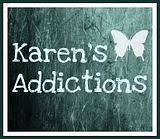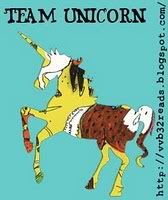It's impossible, especially if you write fantasy or science fiction to always write what you know. And yet, even then it's good advice for writing believable characters, compelling details, and for walking that narrow line between sense of wonder and suspension of belief.
Wide Open
But there are also things in Wide Open that I know or have known or almost know.
A friend once told me that the better piece of advice is to 'write what you almost know.' And I have to admit that advice resonates with me. When I almost know something, when it's not unknown, but not yet, or no longer, intimately familiar, I can see it and recognize it, and still notice the detail. I can appreciate it in ways that I often can't appreciate the everydayness of my house or my street or the state of Iowa. In my own house, I ignore the squeak of the back door, the splash of yesterday's mud across the glass. I don't remember that the driver's side door of my car sticks when the temperature drops or the light at the end of my street goes out every time it rains.
It was years after I left western New York State where I grew up before it appeared in a story. If I set a story in Iowa, it's usually in a part I've been to, but not the central part where I live. I've visited western South Dakota. I almost know it. And so I can write about it.
From Wide Open, here's a description that's almost South Dakota, set in a county that doesn't exist:
The clouds had turned steel gray and were starting to spit rain by the time they pulled onto Seven Mile Creek Road. Hallie was cold, but she couldn’t tell if it was because the weather had turned even colder or because there were two ghosts in the car with her. Probably both. They’d come up the county road, turned north, and headed back toward Highway 54.
Hallie thought they’d stop at that intersection, the one between Seven Mile and 54, thought that must have been where it happened because there was a stand of trees right there, between the road and the creek—cottonwoods mostly and a couple of old bur oaks. They did stop, waited for an old black Suburban to cross the intersection, then turned left onto Seven Mile Creek Road past an old garage and a partially collapsed house. The old cracked asphalt crumpled to nearly nothing as they came up on the town of Jasper, or what was left of it after the tornado in ’94—a couple of concrete block buildings without roofs or windows, stalky weeds ranged along what was once a road or driveway, a rusted-out car next to a stack of old tires.
Beyond Jasper, Seven Mile dwindled to practically nothing—old asphalt, then gravel, then, abruptly, hard-packed dirt.
Davies turned left again, bounced a little as the car dropped onto a dirt track with dusty brown blades of grass spiking up along the crown.
“This—,” Hallie began, then stopped when the deputy looked at her. But this couldn’t be right. What would Dell have been doing up here? At night? By herself? “I thought she hit a tree on Seven Mile,” Hallie said, eyeing the deputy suspiciously.
“I didn’t tell you that,” he said.
“You didn’t tell me anything.”


































